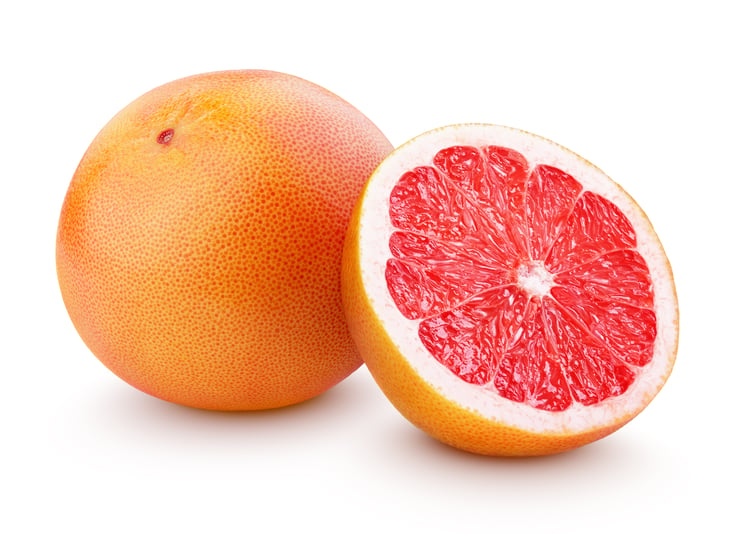
Like many Americans, I have plenty of street cred when it comes to dieting.
When I was younger, in pursuit of weight loss I ate grapefruit, gave up fat, gave up all my favorite foods, followed a macrobiotic diet and tried fasting. Such crazy diet advice seems as American as apple pie.
Eventually I found that a balanced diet, with a wide variety of foods and lots of fresh fruits and vegetables, was the best approach for me.
Fad diets “don’t work and can even be counter-productive,” Charlotte Markey, a professor of psychology at Rutgers University in Camden, New Jersey, tells the American Heart Association. “They can even lead to weight gain, not weight loss.”
Let’s look at some of the more unhelpful — or even harmful, in some cases — pieces of dieting advice.
1. Eliminate dairy products

An elimination diet — cutting certain food groups, like dairy products, from your diet for a period of time — can be useful in identifying food allergies or sensitivities, according to Dr. Amy Rothberg, a University of Michigan associate professor of medicine and nutritional sciences who specializes in treating metabolic diseases such as obesity and diabetes.
But an elimination diet won’t help with weight loss, she says.
That’s a matter of “calorie restriction and eating things that are less calorie-dense — lean proteins, whole grains and vegetables,” Rothberg says.
In fact, cutting out entire food groups — such as wheat or dairy — may cause you to miss out on nutrients needed for good health, the American Heart Association says.
2. Hungry? Drink water or chew gum

Often-heard advice for ignoring the gnawing feeling of hunger is to fill up with water or to chew gum.
Drinking enough water is important, of course, but neither water nor chewing gum is unlikely to convince your body that you’re not hungry.
“From a physiological level I will never understand how an empty stomach can be cured by any of these actions,” licensed nutritionist Lexy Penney tells food blog Eat This, Not That, which publishes diet and nutrition information from board-certified doctors, nutritionists, chefs, personal trainers and dietitians.
3. Eat grapefruit to burn fat

The “grapefruit diet,” touted by diet books and diet promoters since at least the 1930s, is a classic “fad diet.” It promotes the notion that grapefruit has enzymes that, if consumed before a meal, will help you burn fat, WebMD’s Nourish publication explains.
Fruit can be a good source of fiber, and eating fiber might help suppress your appetite, WebMD says. In fact, “research has also found that regularly eating fruit is inversely associated with obesity.”
But grapefruit doesn’t burn fat, research has confirmed.
Good to know: Grapefruit can interfere with the action of some prescription medicines, so it’s a good idea to check with your doctor or pharmacist about possible interactions before eating them.
4. Fat-free foods promote weight loss

At an age when I should have known better, I tried eating a lot of fat-free foods, mostly baked chips, fat-free ice cream, sugar-free soda and a certain brand of packaged cookies in the hope of losing weight. I didn’t try to count calories, just hoped that the fat free stuff would do the trick for me. Nuts, right? To be fair, my friends were doing the same.
I knew better. Probably, we all did. But I loved the magical idea that I could eat all I wanted of foods typically forbidden on diets and lose weight.
Of course I didn’t lose weight. And those fat-free foods didn’t taste very good. That’s because, as WebMD explains, “food makers tend to pour other ingredients — especially sugar, flour, thickeners, and salt — into the products. That can add calories.”
5. Cut out fruit to lose weight

You may have heard that it’s helpful to eliminate fruit from your diet if you want to lose weight. The idea behind this erroneous advice is that it helps reduce your sugar intake.
True, fruit does have sugar, but not enough to make it worth losing out on the filling fiber and critical vitamins and minerals that promote health, registered dietician Emily Danckers tells Eat This, Not That.
“If you want to be healthier, don’t cut out fruit. If you’re concerned about sugar intake, try cutting back on sweetened beverages and processed sugary treats instead,” Danckers says.
6. Fast for 24 hours once weekly

Fasting to lose weight makes intuitive sense. If you skip a day’s worth of calories, surely you’ll drop some pounds, the thinking goes.
But fasting can backfire: It can make it difficult to maintain a healthy blood sugar level throughout the day, registered dietician Shena Jaramillo tells Eat This, Not That.
Instead, Jaramillo advises, use portion control to help manage blood sugar, body weight and energy.
7. Weight loss stalled? You’re in “starvation mode”

People on weight loss diets sometimes can hit a plateau and their weight loss slows or stops for a time.
Dieters may tell themselves that they’ve triggered “starvation mode,” supposedly caused when the body tries to protect itself from a dangerous loss of weight.
But, in fact, that’s doubtful.
“In extreme cases, true starvation mode can occur, but it’s unlikely the majority of people will experience this when trying to lose fat,” writes The Insider, interviewing registered nutritionist Rhiannon Lambert.





Add a Comment
Our Policy: We welcome relevant and respectful comments in order to foster healthy and informative discussions. All other comments may be removed. Comments with links are automatically held for moderation.